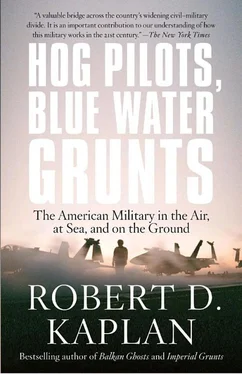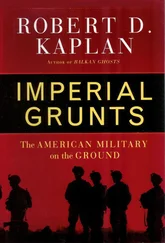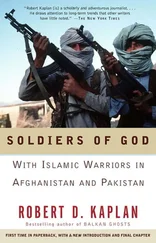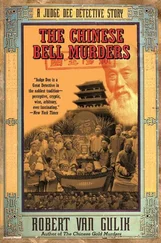The first was the national military cemetery at the Pouwaina (“Hill of Sacrifice”), where the indigenous Hawaiians had sacrificed offenders of certain kapas (taboos) to the pagan gods. In Section D, Grave 109, beside a banyan tree, among the other flat markers level with the ground, lay the remains of Ernie Taylor Pyle. An Indiana native, Pyle was killed at the age of forty-four in April 1945 during the Battle of Okinawa. He was a newspaper correspondent who had lived with the troops and wrote from their point of view. Like his fellow World War II correspondents in the Pacific, including Robert Sherrod and Richard Tregaskis, Pyle was sympathetic to his fellow Americans in uniform, demonstrated by the use of “we” and “our” in his narratives. Standing beside his grave, located between two unknowns, I thought of my late editor at The Atlantic Monthly, Michael Kelly, killed at a similar age while covering Operation Iraqi Freedom in April 2003. Kelly, like Pyle, manifested an honest, working-class punch in his sympathetic narratives about American soldiers.
The second hallowed spot was the USS Missouri, anchored off Ford Island in Pearl Harbor. Christened during World War II by then-senator Harry Truman’s daughter, Margaret, the Missouri saw action in the last months of the war, at Iwo Jima and Okinawa. It was struck by a kamikaze at the latter battle. Each of its nine main guns weighed as much as the space shuttle: 239,000 pounds. On September 2, 1945, while the Missouri lay anchored in Tokyo Bay, the Instrument of Formal Surrender ending World War II was signed on its teakwood deck, next to an American flag brought to Japan in 1853 by Commodore Matthew Perry. Upon the last Japanese signature, 450 propeller-driven Allied aircraft buzzed the battleship. One sailor described it as a sound that shook the world. At a time when China, Japan, and Western Europe lay in ruins, and when the Soviet Union had yet to develop an atomic bomb, that moment aboard this ship represented the climax of American power. The American volunteer military, enjoying the soldiering life for its own sake, and occupied with its train-and-equip missions worldwide, might have been in an imperial-like situation, but it was doubtful that even after the Soviet Union collapsed, at the height of our unipolar power, we dominated the world as much as we did back then.
In the mid-1950s the Missouri was decommissioned. In 1984, President Ronald Reagan, against the advice of naval experts, recommissioned the ship out of mothballs, refitted it, and sent it on a world tour, the first time such a thing was done since President Theodore Roosevelt had sent the “Great White Fleet” on a world tour eight decades earlier. Reagan might not have understood naval technology, but he understood national myth.
At the rechristening ceremony, his defense secretary, Caspar Weinberger, charged the assembled sailors: “Listen for the footsteps of those who have gone before you. They speak to you of honor and the importance of duty. They remind you of your own traditions.” [10] The Missouri was decommissioned for the last time in 1992, during the administration of President Bill Clinton.
As I had been observing for some years, it was still such traditions adjoined to patriotic myth that constituted a hidden hand impelling the U.S. military forward.
———
In fact, even under George Bush, a president with a unilateral foreign policy relative to previous presidents, the U.S. military was trying to construct a system of multilateral security relationships, with pivotal political and economic implications. The Pacific was the best place to witness this development. Here PACOM was attempting to tranform itself into a variant of the North Atlantic Treaty Organization in a region that stretched from East Africa to the International Date Line in the central Pacific and constituted more than half of the world’s economy. Two of the world’s most rapidly modernizing militaries (those of the United States and China) resided within the PACOM area of responsibility. By negotiating bilateral agreements with dozens of countries that had few bilateral security agreements with one another, a regional military alliance of sorts was quietly being formed here at PACOM headquarters.
Otto von Bismarck, the Prussian father of the Second Reich in continental Europe, would have recognized this emerging system. In 2002 the German journalist Josef Joffe argued, in a remarkably perceptive article, that the United States had morphed into Bismarck’s Prussia. 4Just as Britain, Russia, and Austria needed Prussia more than they needed one another—making them “spokes” to Berlin’s “hub”—the U.S. invasion of Afghanistan, Joffe explained, exposed a world in which America was able to forge different coalitions for each crisis, because the other powers needed America more than they needed one another.
Joffe’s insight turned out to be premature, though, because President Bush lacked the nuance and attendant self-restraint of Bismarck, who understood that such a system could endure only so long as one didn’t overwhelm it with ever greater goals and challenges. The Bush administration did just that by the clumsy, often insulting way in which it tried to build a coalition for the invasion of Iraq, so France, Germany, Russia, and China, as well as a host of lesser powers such as Turkey, Mexico, and Chile, united against America to bring down this new Bismarckian power arrangement.
It was only in the Pacific that Bismarck’s late-nineteenth-century system still survived and prospered for the United States, helped along by the pragmatism of Hawaii-based military officers five time zones removed from the ideological hothouse of Washington, D.C. PACOM represented a purer version of Bismarck’s imperial superstructure than anything the Bush administration created prior to invading Iraq. Bismarck forged alliances in all directions from a point of seeming isolation, without the constraints of ideology, writes Henry Kissinger in Diplomacy. 5Bismarck’s was an amoral system that brought peace and prosperity to Central Europe, because when power relationships are correctly calibrated, wars tend to be avoided. Such a system could ease China’s inevitable reemergence as a great power, without destabilizing world politics. China was now expanding its sphere of influence in the Pacific and beyond, just as the United States had done in the nineteenth century, while carving out a mercantile, seaborne empire of its own, propelled by the economic dynamism that ensued from the industrial North’s victory in the Civil War.
China’s investment in both diesel-and nuclear-powered submarines meant that in addition to protecting its coastal shelves, it was intent on building a blue water (oceanic) navy that could project power beyond its borders. This was wholly legitimate. China’s rulers were not democrats in the literal sense, but they were seeking a liberated first-world lifestyle for many of their 1.3 billion people. That meant protecting sealanes for the sake of transporting oil—necessary for the consumption habits of a new middle class. Naturally, China’s rulers did not trust the navies of the United States and India to do that for them. Yet as history has demonstrated, big powers all pursuing legitimate interests occasionally come into conflict. Thus, the defining regional struggle of the first half of the twenty-first century might occur within the PACOM area of responsibility (AOR). A war with China was a very remote possibility; more likely was a series of extremely subtle, military and diplomatic standoffs. America’s complete dominance over the Pacific was over. China seemed determined to be the master of subtle, peaceful influence, something that, after all, required a military component. It was a reality with which we had to come to terms.
Читать дальше












